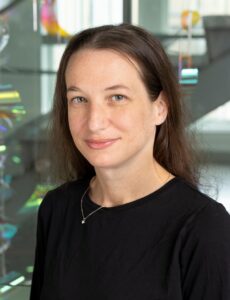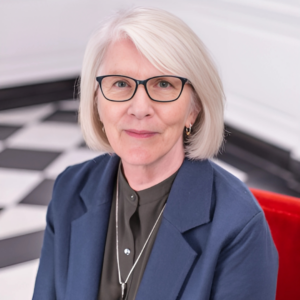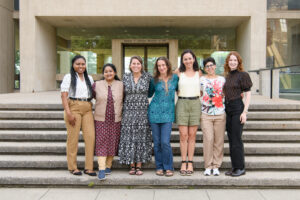Every summer, something important is happening in Ithaca, New York. While farmers in the region are tending the state’s prized apple orchards and corn fields, a group of nutrition and public health researchers are helping Americans think about how those very products we grow and love impact our health.

At Cornell University’s Division of Nutritional Sciences, Julia Finkelstein, MPH, SM, ScD, and Patricia A. Cassano, MPH, PhD, co-lead a unique program that brings together health professionals from across the U.S. to tackle some of the toughest questions in nutrition and health today. Which prenatal vitamin should people take for a positive pregnancy experience? Is coffee safe during pregnancy – or fish – and how much? What’s considered a healthy weight gain during pregnancy?
These questions—and many more like them—are at the heart of the WHO Cochrane Cornell Joan Klein Jacobs Center for Precision Nutrition and Health Summer Institute, a collaboration between the World Health Organization, Cornell University and Cochrane, a global nonprofit that produces high-quality health evidence.
Making Sense of the Nutrition Noise
“We’re living in a time of information overload,” Finkelstein, an epidemiologist and public health researcher, explains. “Nutrition and health advice is everywhere—from social media and podcasts to generative AI and influencers. But just because information is accessible doesn’t mean it’s accurate.” That’s because nutrition research has exploded in recent years, with thousands of new studies published every year, making it more important than ever to understand how to interpret data responsibly.
“We’re living in a time of information overload… but just because information is accessible doesn’t mean it’s accurate.”

This is where the Summer Institute steps in. Its goal? To train the next generation of nutrition leaders in how to find, understand, synthesize, and apply the best available scientific evidence to improve human health. Participants learn how to conduct and interpret Cochrane systematic reviews—comprehensive studies that compile and evaluate existing research—using methods developed by Cochrane, which are widely considered the gold standard in public health and medicine.
“Our training helps professionals cut through the noise and use rigorous, transparent, reproducible science to inform policies that affect millions,” Finkelstein shares.
Turning Knowledge into Policy
Over the past decade, nearly 300 professionals have completed the Summer Institute training. Many are now in key positions in federal agencies like the CDC, FDA, NIH, USDA and the National Academies of Sciences, Engineering and Medicine.
Their work has helped shape U.S. nutrition standards like the U.S. Dietary Guidelines, Women, Infants and Children Nutrition Program (WIC) food packaging and recommendations for obesity prevention programs for adolescents.
Finkelstein notes that the Institute’s alumni “play a critical role across the entire landscape of nutrition and health research, practice and policy—not only in the U.S., but around the world.” She emphasized, “When you think about interventions that can make the biggest impact on human health, nutrition is at the top of the list.”
“Interventions that can make the biggest impact on human health; nutrition [is] at the top of the list.”
What Is Precision Nutrition?

A key focus of the Summer Institute is precision nutrition, an emerging field that complements the traditional “one-size-fits-all” approach to dietary guidelines.
Instead of broad recommendations for the general population, precision nutrition looks at individual differences like age, health status and environmental factors to develop more targeted and effective nutrition advice.
“Our partnership with WHO has been a vital to helping us advance this work,” Finkelstein emphasizes. “By combining global expertise with localized training, we’re informing policies that are both scientifically sound and relevant to the diverse needs of people in the U.S.”
“Our partnership with WHO has been a vital to helping us advance this work. By combining global expertise with localized training, we’re informing policies that are both scientifically sound and relevant to the diverse needs of people in the U.S.”
A Mission to Do the Greatest Good
For she and her colleagues, the partnership with WHO is deeply aligned with Cornell’s founding mission: “to do the greatest good.”
“Our goal is to inspire and equip future leaders to do just that—to use science to improve health,” she says. “We’re proud that our work here in Ithaca is having an impact across the country and beyond.”
“Our goal is to inspire and equip future leaders to use science to improve health.”
